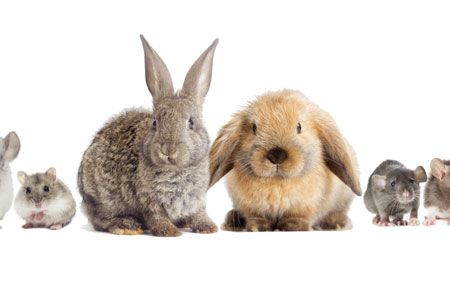The trade secret of owning an exotic animal veterinary practice
Using a chinchilla with acquired dental disease as an example, Dan Johnson, DVM, DABVP, shared the secret to owning a well-equipped exotic animal practice: supportive care.

(Happy Monkey/stock.adobe.com)
In his session “Acquired Dental Disease of Rabbits and Rodents” at Fetch dvm360 conference in San Diego, Dan Johnson, DVM, DABVP-ECM, shared his insights on the signs, causes and treatment of dental disease in animals such as rabbits, guinea pigs and chinchillas. Using acquired dental disease in chinchillas as an anecdote, Dr. Johnson gave what he considers to be the trade secret to successful case management in exotic animal practice: supportive care.
“If chinchillas do not consume enough hay and other course dietary fiber, then normal dental wear does not occur. As open-rooted cheek teeth get longer, increased occlusal contact occurs,” Dr. Johnson says, “Then, affected teeth are forced apically, which damages the germinal tissue of the tooth and causes surrounding jaw bone to remodel. This is what we mean by ‘acquired dental disease.'”
Once a chinchilla has acquired dental disease, Dr. Johnson says, all a veterinarian can do is maintain the animal's quality of life. This can be managed by frequent rechecks, repeated trimming and reduction of crowns, long-term pain meds and assisted feeding.
“The long-term prognosis is poor, yet I've had chinchillas begin with this disease when they're 13 and live until they're 18. This is akin to a dog with chronic skin disease,” Dr. Johnson says.
Maintaining the quality of life of pets with adequate supportive care is key to growing a successful exotic animal practice, according to Dr. Johnson.
“The trade secret to exotic animal practice is good supportive care. Anybody can trim teeth or spay and neuter rabbits and rodents, but you need follow these procedures with supportive measures like fluid therapy, syringe feeding, supplemental heat, pain meds and antibiotics. When your hospital is equipped to provide adequate support for exotics, and you and your technical staff become skilled at it, that's when your case outcomes really begin to improve,” Dr. Johnson says.